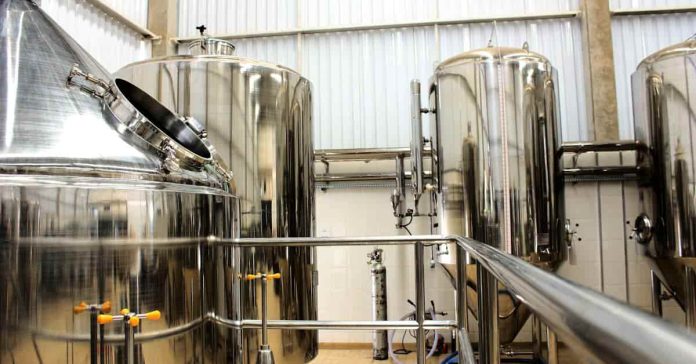Grain storage is an essential aspect of the agriculture industry. After crops are harvested, they need to be stored. They can be transported or processed. This is where stainless steel bins come into play.
Thank you for reading this post, don't forget to subscribe!Stainless steel has been proven to be the most durable and practical material for grain storage. It is resistant to corrosion, rust, and pests, making it ideal for long-term storage of grains.
Stainless steel bins also offer a variety of features that can help maximize grain storage efficiency. Read on to learn more.
Airflow
One important factor in grain storage is proper airflow. Poor airflow can lead to moisture build-up and the growth of mold or bacteria, which can damage the grains.
Stainless steel bins have built-in ventilation systems that ensure proper airflow. Keeping the grain in optimal conditions for storage.
The airflow mechanism in stainless steel bins is designed to enhance the quality of stored grains. These bins feature placed perforations or vents. This eases consistent air circulation throughout the bin.
Temperature Control
Temperature control is another crucial aspect of grain storage. Grain storage at a consistent temperature helps preserve their quality and minimizes the risk of spoilage. Stainless steel bins have insulating properties.
This helps maintain a consistent temperature. Protecting the grains from extreme heat or cold.
Stainless steel’s inherent material properties contribute to temperature control in grain storage. It reflects radiant heat rather than absorbing it. It prevents drastic temperature fluctuations within the bin.
This feature particularly benefits regions with intense sunlight and high ambient temperatures. The insulative properties of stainless steel bins come into play. Minimizing heat loss and preventing the grain from freezing.
Easy Cleaning
Grains can leave behind dust and residue in storage bins. This can attract pests and lead to contamination, so grain quality management is essential.
Stainless steel bins are easy to clean, making maintaining a hygienic environment for grain storage easier. This also helps prevent any cross-contamination between different batches of grains.
Stainless steel bins often feature interior surfaces with a smooth finish. The smoothness prevents the grains from sticking to the bin walls.
Versatility
Stainless steel bins come in various sizes and designs. Making them suitable for different types of grains and storage needs. They can be customized to fit specific requirements, such as the capacity for storing grains or the available space on a farm.
Stainless steel bins’ adaptability extends beyond the variety in sizes and designs. The structural strength of stainless steel allows for higher vertical construction. Maximizing storage capacity even when ground space is limited.
This ability to go “upwards” rather than “outwards” benefits farms. It also includes facilities where land availability may be a constraint.
Longevity
Investing in stainless steel bins may require a higher upfront cost than other grain storage options. Their durability and longevity make them a cost-effective choice in the long run.
For storage facility optimization, they can last for decades with minimal maintenance. Making them a reliable and efficient storage solution.
Choosing the right grain storage solutions is about immediate needs. It also involves considering the long-term efficiency of the storage system. They lack the longevity, durability, and efficiency of stainless steel bins.
Understanding The Storage Efficiency With Stainless Steel Bins
Stainless steel bins offer many advantages for maximizing grain storage efficiency. Farmers can ensure safe and efficient grain storage. This is by investing in stainless steel bins. It leads to better yields and profits.
Stainless steel bins are an essential tool for any agriculture operation. This is to optimize its grain storage process.
For more helpful tips, check out the rest of our site today!


